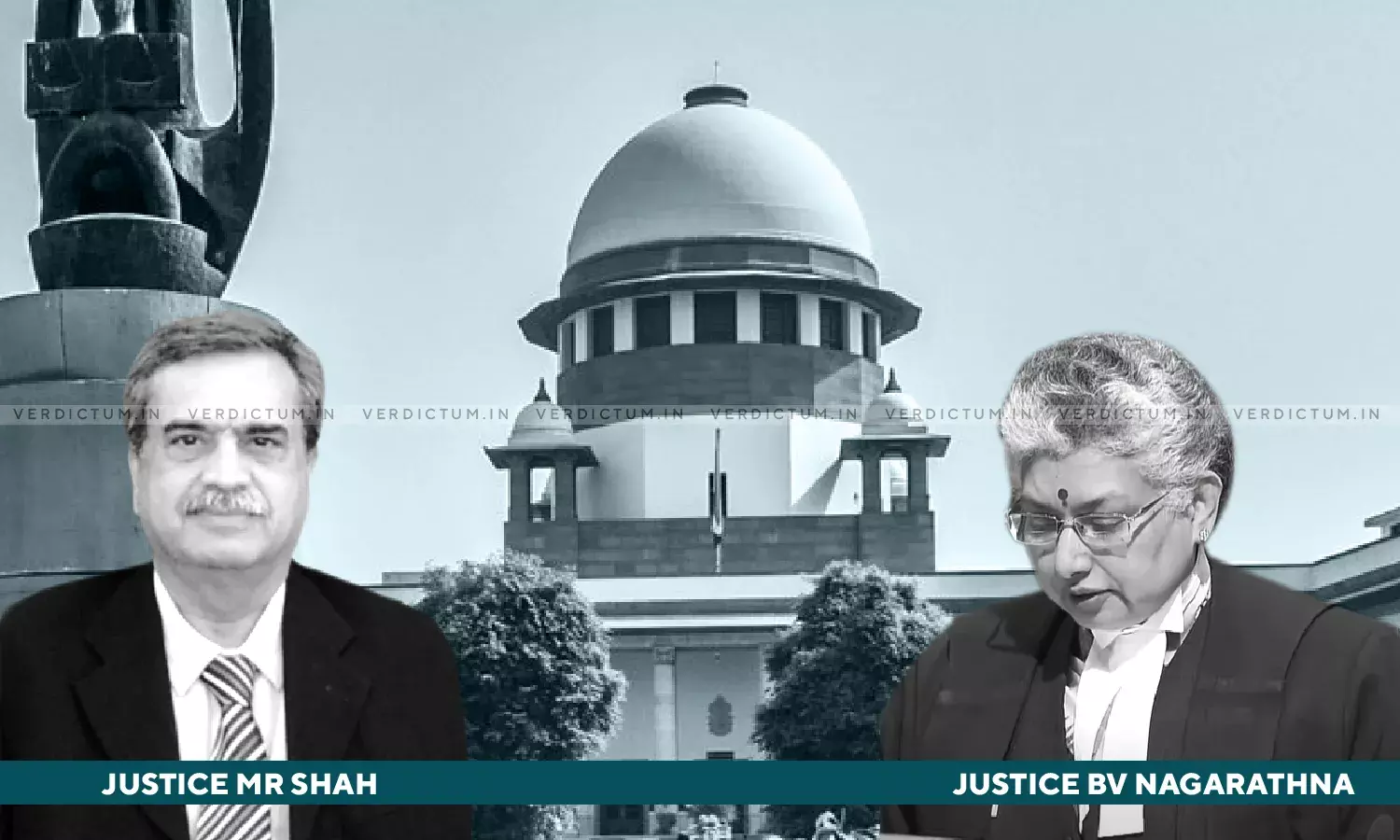Courts Not To Examine Execution Of Agreement To Sell Once Vendor Admits Execution And Receipt Of Consideration - SC
A two-judge bench of Justice M.R. Shah and Justice B.V. Nagarathna quashed a set aside a judgment and order passed by the Karnataka High Court regarding the specific performance of an agreement to sell.
A Civil Appeal was filed before the Supreme Court, against a judgment passed by the Karnataka High Court. In the judgment, the High Court had set aside a judgment and decree passed by the Trial Court, which granted decree for the specific performance of an agreement to sell.
Senior Advocate S.N. Bhat appeared on behalf of the Appellant.
In this case, the Appellant had entered into an agreement with Respondent 1 to purchase a property and made the necessary payments according to the sale agreement. However, the Respondents did not execute the sale deed, despite multiple requests by the Appellant. Respondent 2 had clandestinely misused the power of attorney to execute sale deeds in favor of Respondent 3 and 4, thereby attempting to defraud the Appellant. Respondents 3 and 4 were his sisters-in-laws.
The Respondents did not execute the sale deed even after a legal notice was served to them. Therefore, the Appellant filed a suit for specific performance before the Trial Court.
The Trial Court passed a decree of specific performance of the contract. It held that the sale deed executed in favor of Respondents 3 and 4 is not binding.
Respondents 3 and 4 then preferred an appeal before the High Court. The High Court allowed the appeal and relying on Section 20 of the Specific Relief Act, quashed the decree passed by the Trial Court.
Aggrieved, the Appellant approached the Supreme Court.
The Bench of the Apex Court referred to various precedents as well as the findings presented by both the Trial Court as well as the High Court.
The Court held that once Respondent 1 had specifically admitted to the execution of the agreement to sell and receipt of the advance sale consideration, no further evidence and/or proof was required. It was unnecessary for the High Court to go into the aspect of the execution of the agreement to sell and the payment and receipt of consideration.
It was noted that the High Court brushed aside crucial evidence and findings given by the Trial Court, which concluded that the sale deeds issued to Respondents 3 and 4 were not valid.
The Bench took cognizance of the fact the Respondents did not reply to the legal notice issued by the Appellant.
The Bench also found that Section 34 of the Specific Relief Act will have no application as the sale deeds issued to Respondents 3 and 4 are created documents and no consideration was paid for them. Although the Trial Court ought to have provided discretionary relief under Section 20 of the Specific Relief Act, based on the facts and circumstances, the Trial Court rightly decreed the suit for specific performance.
The Supreme Court found that the High Court had committed a grave error by reversing the judgment and decree passed by the Trial Court by ignoring the vital facts of the case.
Accordingly, the appeal was allowed and the impugned judgment of the High Court was set aside.
Click here to read/download the Judgment




